- Los Angeles Unified School District
- Elementary Math Professional Reading

-
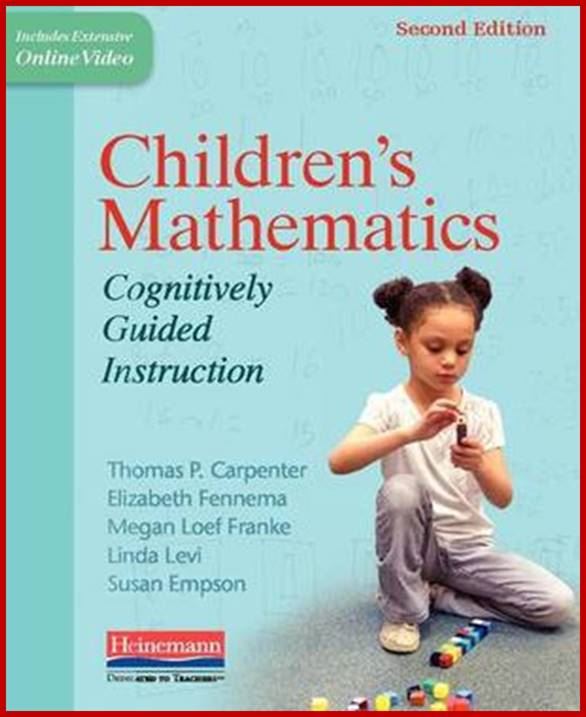
Children's Mathematics Cognitively Guided Instruction
by Thomas P. Carpenter et. al Year Published:Children's Mathematics Cognitively Guided Instruction introduces teachers to understanding how children use intuition to solve problems and how teachers can use children's thinking to guide instruction. The problem types addressed in this book are aligned to Operations and Algebraic Thinking and Numbers and Operations Base Ten. This book provides videos and samples to help understand children's thinking.
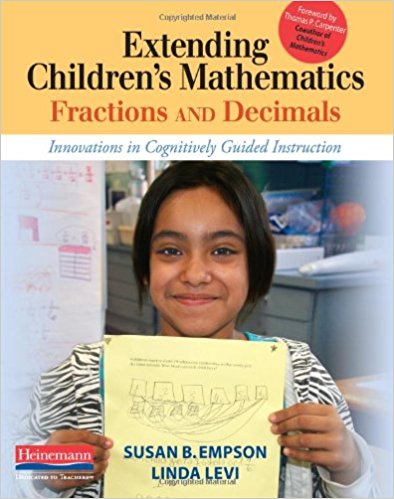
Extending Children's Mathematics: Fractions and Decimals
by Susan B. Empson and Linda Levi Year Published:Children struggle with learning fractions, as well as teachers struggle teaching fractions. What is it about fractions that is intimidating to so many? Extending Children's Mathematics: Fractions and Decimals support teaching and learning mathematics by bringing it back to the context. This book supports teaching fractions and decimals through contextualized problems so that children understand the meaning of fractions. They provide many sample problems as they relate to the strategies children use and the progression of learning.
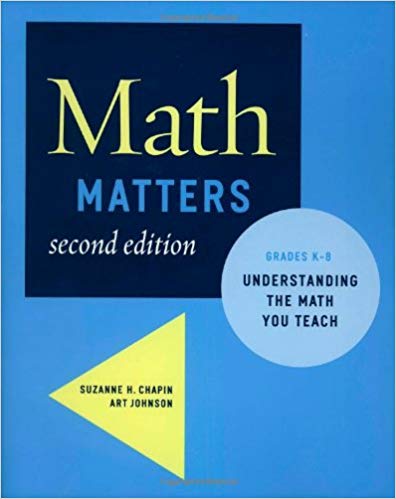
Math Matters Second Edition: Grades K-8 Understanding the Math You Teach
by Suzanne H. Chapin and Art Johnson Year Published:Math Matters is like taking a methods class again and learning about the theory behind the practice. This book also include tips and activities that support students' development of both conceptual understanding and procedural skills and fluency. If you need a review or simply enjoying learning math, this is the book to jump into.
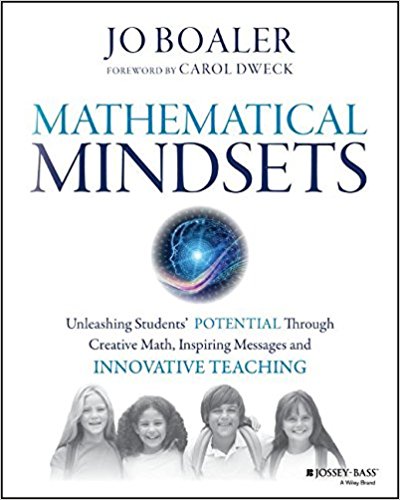
Mathematical Mindsets
by Jo Boaler Year Published:We've all heard about fixed and growth mindsets, but how do mindsets impact mathematics teaching and learning? Mathematical Mindsets artfully describes the impact our mindsets have on teaching mathematics and children learning mathematics. This book inspires us to reflect upon our mathematical journey and break free from the chains of doubt and worry to allow children to have a richer mathematical experience.

Principles to Action
by National Council of Teachers Mathematics Year Published:Principles to Action highlights six guiding principles for mathematics instruction- Teaching and Learning; Access and Equity; Curriculum; Tools and Technology; Assessment; and Professionalism. These guiding principles support Common Core Mathematics, as well as the movement for improved mathematics instruction launched by the National Council of Teachers of Mathematics (NCTM). This book serves as a compass to guide how we provide high quality math instruction.
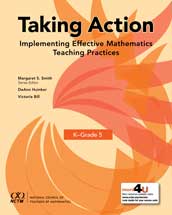
Taking Action- Implementing Effective Mathematics Teaching Practices in K-Grade 5
by National Council for Teaching Mathematics Year Published:Taking Action is a follow up to Principles to Action to support teachers in the journey of providing effective mathematics instruction. It provides Analyzing and Teaching throughout the reading that analyzes what teachers do and the impact it has on children learning. Scripts and videos are also included in the book so that teachers can "see" how the guiding principles are implemented and what it looks like.
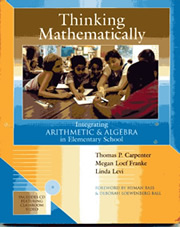
Thinking Mathematically: Integrating Arithmetic & Algebra in Elementary School
by Thomas P. Carpenter, Megan Loef Franke, and Linda Levi Year Published:Children's experience with an understanding of arithmetic have an impact on their success in algebra. Thinking Mathematically builds on the work from Children's Mathematics of how children learn the fundamental properties of mathematics through basic word problems. They then use their understanding of operations to extend from arithmetic to algebra. This book provides many practical activities and lessons, along with theory, that help children make sense of arithmetic and extend to algebra.
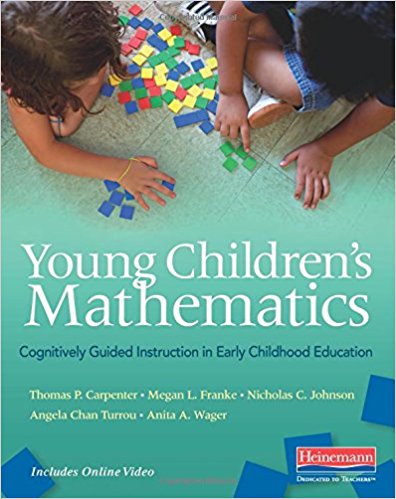
Young Children's Mathematics
by Thomas P. Carpenter et. al Year Published:From a very young age, children begin to count and recite numbers. But what do these numbers mean in the minds of these young children? Young Children's Mathematics engages readers in understanding how young minds develop the concepts of numbers and how their understanding of numbers impact their mathematical work in subsequent grades. Teachers will learn how to engage young minds in developing the concepts of numbers and use the "details of their thinking" to guide instruction.

